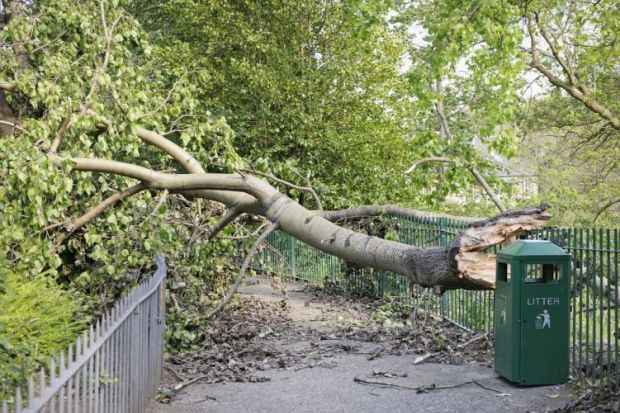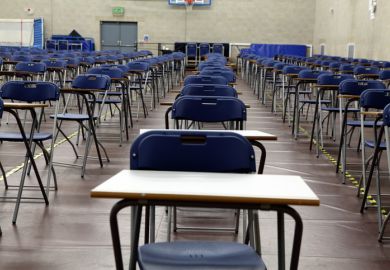Labour leader Sir Keir Starmer has warned that the UK’s exam moderation fiasco risks “robbing a generation of their future”, as a survey has revealed that the cancellation of exams in the wake of Covid-19 has left almost a third of students believing they are less likely to get into their first-choice university.
Sir Keir called on the prime minister, Boris Johnson, to introduce an appeals process that allows students in England to challenge grades that they feel have been unfairly downgraded as a result of standardisation, and to tell universities to be more flexible with their admissions criteria this year.
The intervention came after the Scottish government withdrew the results of the 75,000 students whose estimated mark in their Scottish Highers had been reduced by the exam board and promised to give them new grades based solely on teacher estimates.
It has been estimated that as many as 40 per cent of A-level results, which are out on 13 August, might have been downgraded.
Moderation has been used to bring marks closer in line with scores handed out by schools in previous years.
But this appears to be penalising students from disadvantaged backgrounds and those from schools with a record of poor performance. In Scotland, the Higher pass rate for pupils from the most disadvantaged backgrounds was cut by 15.2 percentage points, while the rate for the wealthiest pupils was reduced by only 6.9 percentage points.
Speaking ahead of a meeting with teachers and parents in Wakefield on 12 August, Sir Keir called on the government to publish details of the model that was being used to moderate grades in England to help students understand their results.
“It’s a blatant injustice that thousands of hard-working young people risk having their futures decided on the basis of their postcode,” Sir Keir said.
“The [Scottish National Party] have been forced into a humiliating U-turn after a shambolic few days. With 24 hours before results are released, I would urge the prime minister to change course, or he risks robbing a generation of their future.”
Sir Keir’s comments coincided with the release of a survey of 502 university applicants, conducted for the Sutton Trust charity, that found that 30 per cent of respondents felt that they were less likely to get into their first-choice institution because of the disruption caused by the pandemic.
Thirty-four per cent of respondents felt that they were more likely to have to go through clearing to find a place for next year.
The Sutton Trust survey also found that 32 per cent of applicants felt that the pandemic had made them less likely to begin university this autumn. One in five had already changed their plans or were unsure about their next step, and, of those, 50 per cent said this was because of worries about achieving the grades needed to get into their first-choice course. Forty-two per cent per cent were concerned about the quality of education on offer during the pandemic.
Of those surveyed, 34 per cent rated themselves more likely to take a gap year.
The survey revealed a lot of concern about the pandemic’s impact on their university experience: 73 per cent of applicants said they were most worried about how the pandemic would affect their ability to take part in university social life and 67 per cent were worried about losing face-to-face teaching.
It found that 54 per cent were worried about the possibility of catching or spreading Covid-19.
Sixteen per cent of applicants were less likely to move away from home because of the pandemic.
Sir Peter Lampl, chairman of the Sutton Trust, said the results highlighted the “huge degree of worry and uncertainty among young people applying to university”.
“This year has been unprecedented,” he said. “But what is of upmost importance is that students from low-income backgrounds don’t lose out.
“If these students narrowly miss their grades tomorrow, universities should give them the benefit of the doubt, given the upheaval in their education and the cancellation of exams. They should be given a break given how much they’ve been affected by the pandemic.”
Register to continue
Why register?
- Registration is free and only takes a moment
- Once registered, you can read 3 articles a month
- Sign up for our newsletter
Subscribe
Or subscribe for unlimited access to:
- Unlimited access to news, views, insights & reviews
- Digital editions
- Digital access to THE’s university and college rankings analysis
Already registered or a current subscriber?








